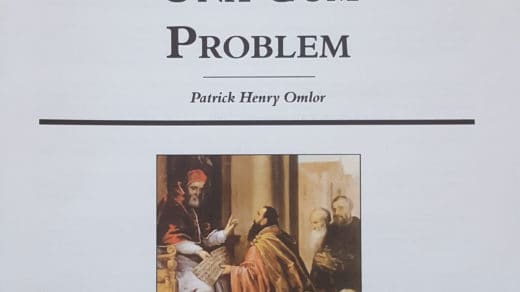“Providence: God’s Loving care for man and the need for confidence in Almighty God” by Fr. Reginald Garrigou-Lagrange, O.P.
This has been the most difficult book review I have ever endeavoured to do. I started reading this book in March this year, when the whole Corona madness erupted on us, thinking that revisiting this topic would be useful to help me follow the dictate of St. John of the Cross, to "Strive to preserve your heart in peace, let no event of this world disturb it." Then I quickly realised that I wouldn’t be the only one needing to do a refresher course in maintaining constancy in trusting in Divine Providence, so I decided I should cram this book in order to publish a review as soon as possible for the benefit of our readers. Wrong! No one should rush through this book. – Everyone should read this book! – And most should read it very carefully and slowly, allowing the profound and incredibly-beautiful truths, so clearly and thoroughly explained by the author, to percolate into the depths of your mind to take up permanent residency there.
Why has writing this review been so hard? The first reason is that I know that no matter how well I manage to describe this treatise, I cannot possibly give it justice – and I wouldn’t want anyone to be turned away from reading it due to my failing. The second reason is that I found it almost impossible to decide what highlights should be quoted because every single page has something striking – virtually the whole thing is a “highlight.” There are more pencilled lines and asterisks marking critically-important phrases and paragraphs than in any book I have previously assessed. Therefore, narrowing down the selection of extracts for inclusion in this overview proved quite the challenge. I felt like just saying to everybody, “Read it, trust me! Soak in every drop of this precious dew, it is a game changer!” but that wouldn’t suffice for a book review, and would be more along the lines of a Twitter comment.
What makes this different to shorter books on the subject of Divine Providence is that it is not just “devotional” but is more so “theological.” The devotional aspect stems from the truths that are explained so well, which are not just consoling and encouraging (as is the usual case when considering this topic) but when pondered carefully this book’s contents would surely inspire a great increase of love for God for any reader who desires such a thing – and would probably have a more long-lasting effect on one’s perspective and attitude than its briefer counterparts.
The contents' headings are as follows:
- The Existence of God and of Providence
- The Perfections of God which His Providence Presupposes
- Providence According to Revelation
- Self-Abandonment to Providence
- Providence, Justice and Mercy
Part IV – Self-Abandonment to Providence comprises Chapters XIX through XXIV, titled respectively:
“Why and in what matters we should abandon ourselves to Providence,”
“The manner in which we must abandon ourselves to Providence,”
“Providence and the Duty of the Present Moment,”
“The Grace of the Present Moment and fidelity in little things,”
“The attitude of Providence toward those who abandon themselves completely to it” and
“Providence and the Way of Perfection.”
The Scriptures are very frequently quoted and applied to the discussions throughout this 389-page book, St. Thomas Aquinas features a fair bit, too, and it even has a substantial index. I present only this one quote for your consideration, since I think it captures the true spirit of this work:
“Thus providence is made manifest in the general outlines of the plan it pursues, but its more exalted ways remain for us a mystery. Nevertheless, little by little ‘to the righteous a light rises in the darkness’ (Ps. III: 4). Every day we can get a clearer insight into these words of Isaias (9: 2): ‘The people that walked in darkness have seen a great light: to them that dwelt in the region of the shadow of death, light is risen.’ And gradually, if we are faithful, we learn more and more each day to abandon ourselves to that divine providence which, as the canticle Benedictus says, ‘directs our steps into the way of peace’ (Luke I: 79).
Abandonment to the divine will is thus one of the fairest expressions of hope combined with charity or love of God. Indeed, it involves the exercise to an eminent degree of all the theological virtues, because perfect self-abandonment to providence is pervaded by a deep spirit of faith, of confidence, and love for God. And when this self-abandonment, far from inducing us to fold our arms and do nothing as is the case with the Quietists, is accompanied by a humble, generous fulfillment of our daily duties, it is one of the surest ways of arriving at union with God and of preserving it unbroken even in the severest trials. Once we have done our utmost to accomplish the will of God day after day, we can and we must abandon ourselves to Him in all else. In this way we shall find peace even in tribulation. We shall see how God takes upon Himself the guidance of souls that, while continuing to perform their daily duties, abandon themselves completely to Him; and the more He seems to blind their eyes, the saints tell us, the more surely does He lead them, urging them on in their upward course into a land where, as St. John of the Cross says, the beaten track has disappeared, where the Holy Ghost alone can direct them by his divine inspirations.”




